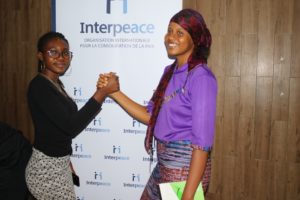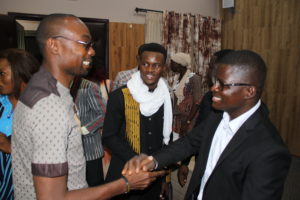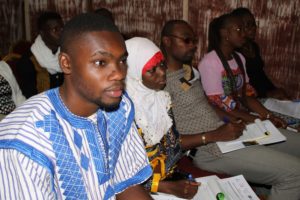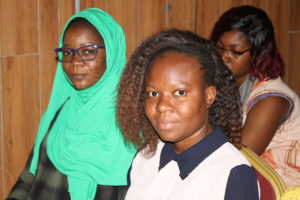Empowering young people to dialogue for peace in Burkina Faso
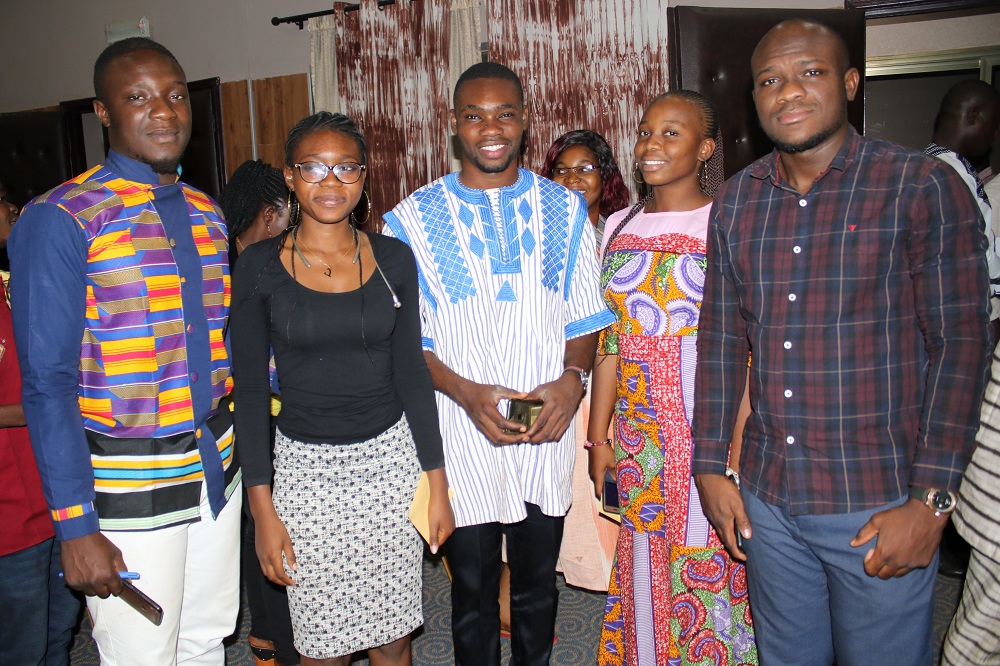
Rising violence and hostilities are rapidly disrupting social cohesion in parts of Burkina Faso. Many actors from national to international institutions are working to address the issues and restore meaningful peace in the country.
However, when addressing violent conflict in communities, especially in areas vulnerable to extremist groups, young people are hardly given a chance to actively participate and make meaningful contributions of their understanding of the dynamics of how their peers engage with parties in conflict, especially through radical actions.
While violence is increasingly spreading throughout the country and transforming in character, youth exclusion has made it even more difficult to tackle the root causes of the violent behaviour.
Interpeace and Fondation Hirondelle have partnered to provide dialogue spaces where young Burkinabè can talk to each other productively about the issues facing their communities.
- Empowering young people to dialogue for peace in Burkina Faso.
- Photo credits: Interpeace.
On Tuesday, 3 March 2020, a national forum for dialogue among young people was launched in Burkina Faso’s main city Ouagadougou. The national youth dialogue initiative gives a voice to young people and empowers them to discuss challenges to peace in their societies and propose practical solutions that can promote peace and improve social cohesion.
“We need committed and responsible young people working [for peace and social cohesion]. This campaign must continue, but we should not get ourselves into populism,” said Ali Bokoum, a young Burkinabè who participated in the forum.
The forum was part of a nationwide project known as “Bibiss Laafi Batû” – which translates loosely to “fostering dialogue among young people in Burkina Faso” - initiated by Interpeace and Fondation Hirondelle.
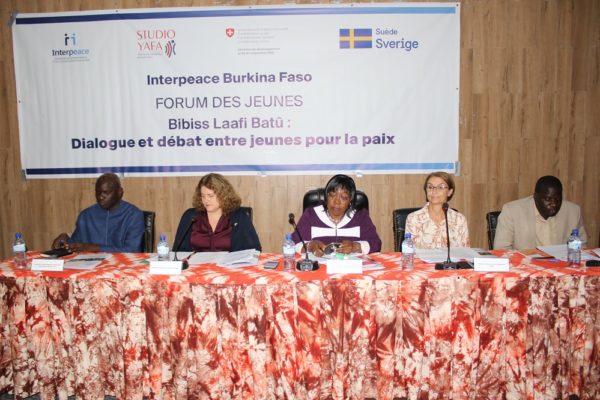
National forum for dialogue in Burkina Faso. Photo credit: Interpeace
Young people in Burkina Faso are often portrayed as perpetrators of violence, whereas only a few of them contribute to violent activities. Many young Burkinabè actively work for peace and security in their societies and drive significant positive change, but hardly engage with each other constructively.
“We have already established dialogue spaces in 9 communities across the country and recorded the participation of 300 young people, 40 percent of whom are women. The aim is to give them a voice to contribute substantially to enhancing social cohesion,” explained Ousmane Niang, Interpeace’s Senior Programme Manager in Burkina Faso.
Effective involvement of young people in peace efforts is essential to build relationships, restore trust and enhance social cohesion in Burkina Faso. The national youth forum for dialogue gave young Burkinabè an opportunity to express their ideas and share experiences for meaningful peace in the country.
- National forum for dialogue in Burkina Faso.
- Crédit photo : Interpeace
“The Burkina Faso of tomorrow depends on our young people today. I count on their commitment and initiative to make peace and social cohesion flourish in our country,” said Ms Madiara Sagnon, Minister for Social Cohesion in Burkina Faso.
Often, young Burkinabè feel increasingly isolated in the national decision-making process. The frustration of exclusion leaves some of them vulnerable to radical actions that disrupt peaceful coexistence in communities.
The project “Bibiss Laafi Batû” promotes a culture of open dialogue among young Burkinabè to consolidate mutual understanding and trust among them, for meaningful and lasting solutions to the violence ripping their societies apart.
“Bibiss Laafi Batû” is funded by the Swedish Ministry of Foreign Affairs et Swiss Cooperation Office in Burkina Faso.
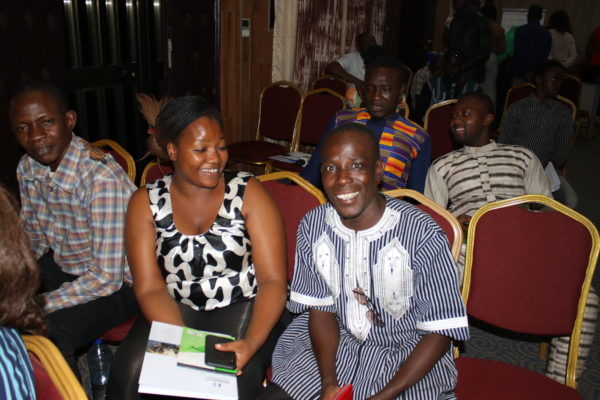
Empowering young people to dialogue for peace in Burkina Faso. Photo credit: Interpeace.
